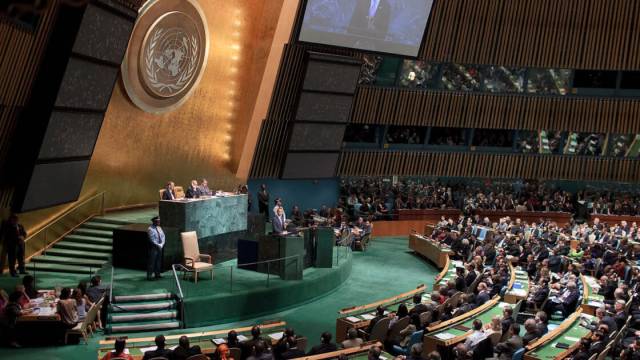The United States has ample resources to express its discontent, including coal and wood.
Globalist officials at the United Nations should take heed of how Americans respond to unconstitutional taxation efforts.
As reported by the Wall Street Journal, the U.N. is preparing to impose what could be considered a global carbon tax, described as “the ultimate in taxation without representation.”
Despite lacking sovereign authority, the U.N.’s International Maritime Organization (IMO) may attempt to enforce taxes on ships, charging between $100 to $380 per metric ton of carbon dioxide that exceeds specific emission thresholds.
In response, the Trump administration has warned of sanctions against nations whose representatives support such measures.
The WSJ noted this as potentially the first instance of the U.N. claiming the right to levy a tax, with proceeds directed into a fund managed by the U.N.
Such a move is likely to provoke American patriots, reminiscent of the historical struggles faced by past generations.
Florida Governor Ron DeSantis articulated this sentiment on social media, stating, “No taxation without representation.” He further asserted, “Being taxed by the U.N. would be far more offensive than the taxes imposed by Great Britain against the American colonies more than 250 years ago. Those taxes sparked the American Revolution.”
DeSantis encapsulated the frustration many Americans feel towards international bureaucracies, concluding, “The U.N. should be defunded, not seeded with new tax revenue.”
He emphasized that U.N. taxes are “far more offensive” than those from the British Parliament, noting how the British were taken aback by American resistance to their taxation.
For instance, the 1765 Stamp Act, which taxed printed materials, faced fierce opposition, with many tax collectors resigning amid threats of violence. By the time the act took effect, a significant backlash had rendered it unenforceable.
It is perplexing that U.N. officials would assume Americans would accept an international body’s claim to tax without consent, especially given the historical context.
This article originally appeared in The Western Journal.
 Telegram is where we really talk. Don't miss out!
Telegram is where we really talk. Don't miss out!








